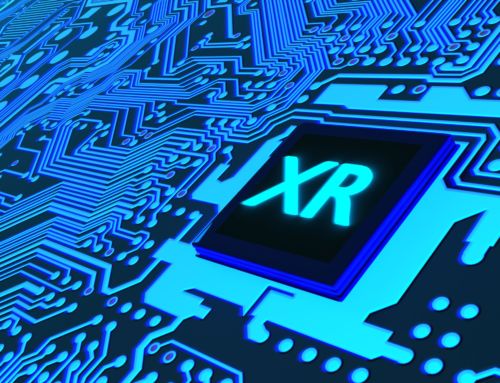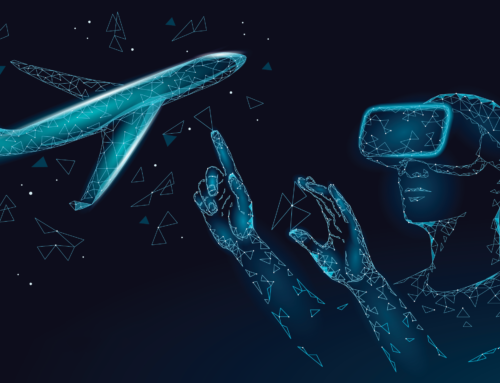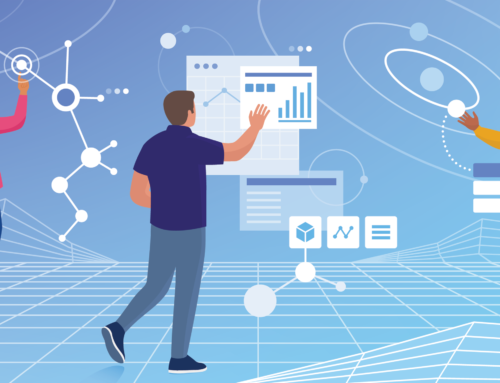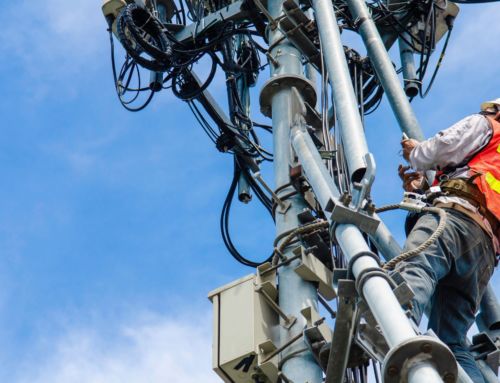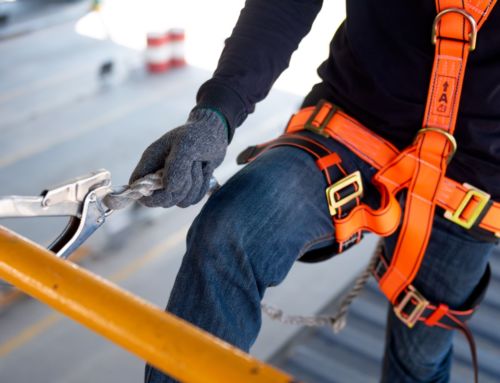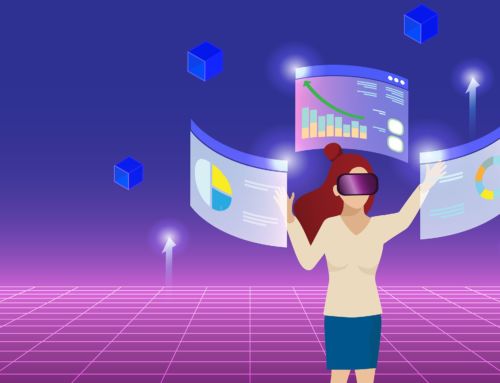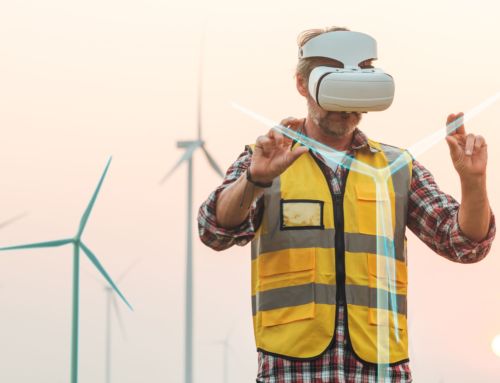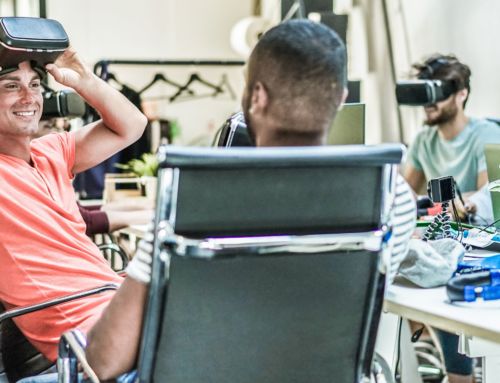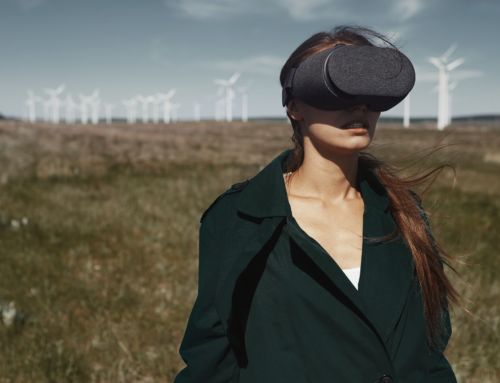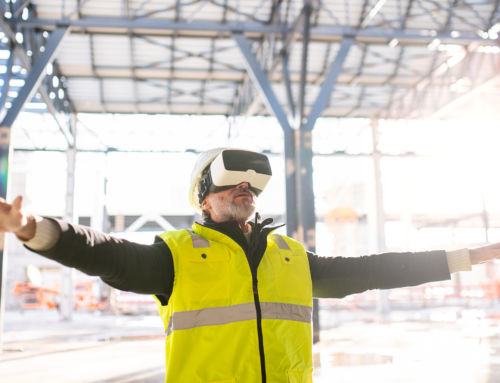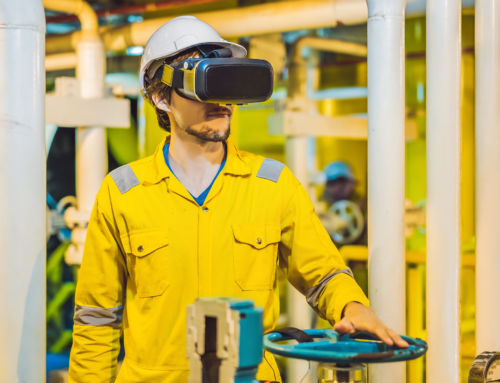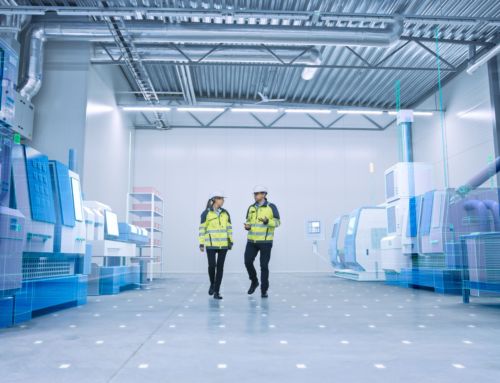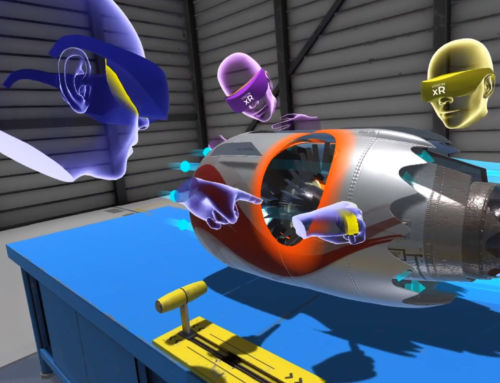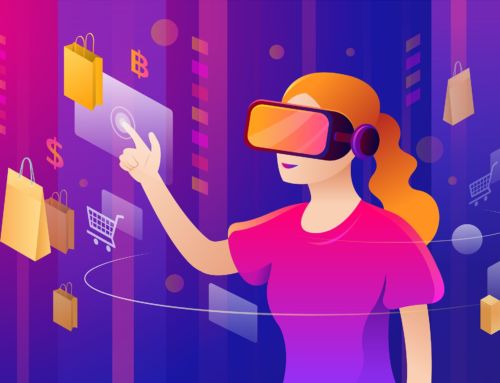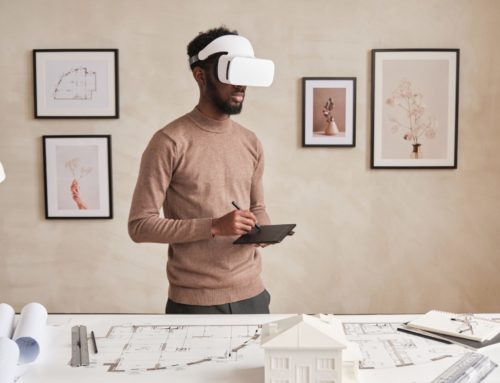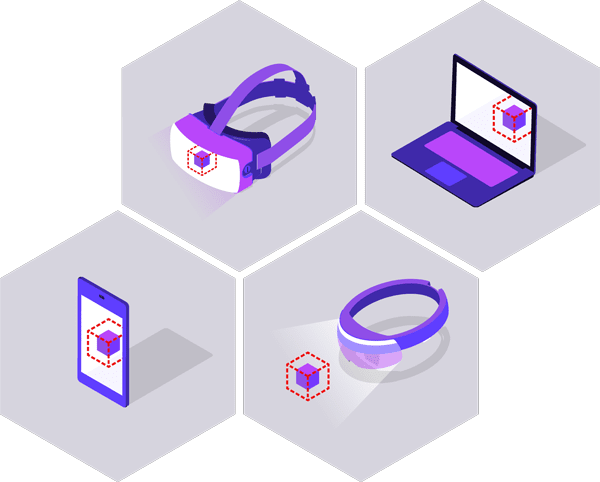Key Takeaways
Just when you thought the pandemic had given humans a lifelong fatigue with technology, a new wave of VR interaction has made its mark in the digital sand.
Of course, we’re talking about the metaverse. A virtual world where you’re free to live, work, travel and play through the power of a headset. It sounds like something from the year 3000, doesn’t it?
But technologists have been busy behind the scenes bringing a new age of technology to the primetime. And we’re about to tell you why it might be of your commercial interest–especially if you’re in the oil and gas industry. But first…
What is the metaverse?
If we think of the internet as something we look at, the metaverse is something where we exist inside. Once part of the metaverse, we become an avatar – a virtual version of ourselves where we’re free to explore the realms of a new digital world.
Instead of socialising, learning and interacting through a linear, two-dimensional construct, the metaverse takes immersivity to the next frontier by showcasing the true potential of virtual reality(VR).
Avatars can be created by companies already making strides in the metaverse, or they can be self-generated through software that uses real-life photographs as a premise for design.
And as you read this sentence, tech companies are behind the scenes investing billions of dollars into new software and hardware to make the metaverse experience as lifelike as possible.
Why is the metaverse of commercial interest?
As the metaverse continues to grow in the digital world, experts such as Chief Technology Officer of Meta, Andrew Bosworth, expects a self-sustaining economy to eventually emerge.
Goods, products and services are all expected to make their way into the metaverse. Stylists for your avatar, interior designers for your virtual home and even banking services to keep your digital money safe and secure. Everything you need, all available through VR.
Of course, for digitally minded businesses who understand the profit-earning potential of the metaverse, investing early is a smart way to get ahead of the competition.
In fact, global giants such as J.P Morgan, HSBC, Gucci and Coca-Cola are among a few of the firms who have already dabbled with the profit-spinning potential of the metaverse.
And with early investment from household names, it’s no wonder the metaverse economy is estimated to be worth between $8 to$13 trillion by 2030.
Now before you think the metaverse is simply hype and sounds like a fancier version of The Sims™, you might be surprised to learn that users not only see, but also feel items in the digital world. It’s technology still under development but, when released, users will hold a sensor-filled glove which allows you to feel items through the hands of your avatar–and all from the comfort of your living room.
Digital twins
By continuously collecting data personal to how we live our lives or how a machine operates, accurate digital twins can be created to exist within the metaverse.
For industries such as construction, manufacturing and energy, having a digital twin helps users understand the physical functionality of machinery and how it responds to certain environments.
It’s an idea which exists through prediction based on a continuous flow of data from real-life sensors and devices, which can lead to improved asset performance, extended operating timelines and increased profits.
For industries that present high-risk, such as the nuclear energy sector, having a digital twin is quite literally life-saving technology which could be the answer to preventing irreversible disaster.
Metaverse applications for oil and gas
Although some sceptics might assume the metaverse is simply a gimmick filled with magical mystery entertainment, the potential for business growth and development has become impossible to ignore.
Take the oil and gas industry, for example. Through virtual reality headsets, employees are piloted through lifelike tasks to develop skills and knowledge within their roles.
Not only does it lead to an increase in profits and efficiency, but it also multiplies the number of trained professionals in the oil and gas sector–an issue that’s previously hindered progress in the industry.
What’s more, by upskilling through the metaverse, employees can rest assured they’re in a risk-free platform where mistakes won’t lead to disaster. Something which can’t be said when training on an active rig.
It’s one of the reasons why the sector is already taking a blended approach to learning by included VR and AR.
And when the metaverse is ready for implementation, you’d imagine industry leaders will be more than ready to double down on their investment in immersive technology.
Of course, there’s also the benefit of a digital twin which allows oil and gas businesses to increase asset performance, profits and efficiency by analysing predicted behaviours within a virtual world.
What could possibly be a more useful business tool? It’s essentially a way for you to accurately predict the future and to change course of action for the benefit of your business. Sounds good to us.
Final thoughts
Although the metaverse is still at relatively early stages of production, there are some prototypes which give a glimmer of its staggering potential.
In fact, many tech experts are hailing the metaverse as the new version of the internet. A place where living, working and socialising becomes more immersive and engaging through the eyes of your avatar.
Now before you think the metaverse is too much of a digital leap, some would argue it’s already with us –just in another form. Daily vices such as smartphones, the internet, gaming are all types of immersive technology that encourage us to live a blended life
The metaverse is just the next step.
And though it’s not quite ready to roll out yet, you’d imagine it’s only a matter of time before its presence shakes up the way we live, work and play across the digital world. We’re at the beginning of a long journey and, if you ask us, the future looks exciting.
If you’d like to learn more about the metaverse or want to demo how virtual reality can help your business, feel free to get in touch today.
Key Takeaways
Just when you thought the pandemic had given humans a lifelong fatigue with technology, a new wave of VR interaction has made its mark in the digital sand.
Of course, we’re talking about the metaverse. A virtual world where you’re free to live, work, travel and play through the power of a headset. It sounds like something from the year 3000, doesn’t it?
But technologists have been busy behind the scenes bringing a new age of technology to the primetime. And we’re about to tell you why it might be of your commercial interest–especially if you’re in the oil and gas industry. But first…
What is the metaverse?
If we think of the internet as something we look at, the metaverse is something where we exist inside. Once part of the metaverse, we become an avatar – a virtual version of ourselves where we’re free to explore the realms of a new digital world.
Instead of socialising, learning and interacting through a linear, two-dimensional construct, the metaverse takes immersivity to the next frontier by showcasing the true potential of virtual reality(VR).
Avatars can be created by companies already making strides in the metaverse, or they can be self-generated through software that uses real-life photographs as a premise for design.
And as you read this sentence, tech companies are behind the scenes investing billions of dollars into new software and hardware to make the metaverse experience as lifelike as possible.
Why is the metaverse of commercial interest?
As the metaverse continues to grow in the digital world, experts such as Chief Technology Officer of Meta, Andrew Bosworth, expects a self-sustaining economy to eventually emerge.
Goods, products and services are all expected to make their way into the metaverse. Stylists for your avatar, interior designers for your virtual home and even banking services to keep your digital money safe and secure. Everything you need, all available through VR.
Of course, for digitally minded businesses who understand the profit-earning potential of the metaverse, investing early is a smart way to get ahead of the competition.
In fact, global giants such as J.P Morgan, HSBC, Gucci and Coca-Cola are among a few of the firms who have already dabbled with the profit-spinning potential of the metaverse.
And with early investment from household names, it’s no wonder the metaverse economy is estimated to be worth between $8 to$13 trillion by 2030.
Now before you think the metaverse is simply hype and sounds like a fancier version of The Sims™, you might be surprised to learn that users not only see, but also feel items in the digital world. It’s technology still under development but, when released, users will hold a sensor-filled glove which allows you to feel items through the hands of your avatar–and all from the comfort of your living room.
Digital twins
By continuously collecting data personal to how we live our lives or how a machine operates, accurate digital twins can be created to exist within the metaverse.
For industries such as construction, manufacturing and energy, having a digital twin helps users understand the physical functionality of machinery and how it responds to certain environments.
It’s an idea which exists through prediction based on a continuous flow of data from real-life sensors and devices, which can lead to improved asset performance, extended operating timelines and increased profits.
For industries that present high-risk, such as the nuclear energy sector, having a digital twin is quite literally life-saving technology which could be the answer to preventing irreversible disaster.
Metaverse applications for oil and gas
Although some sceptics might assume the metaverse is simply a gimmick filled with magical mystery entertainment, the potential for business growth and development has become impossible to ignore.
Take the oil and gas industry, for example. Through virtual reality headsets, employees are piloted through lifelike tasks to develop skills and knowledge within their roles.
Not only does it lead to an increase in profits and efficiency, but it also multiplies the number of trained professionals in the oil and gas sector–an issue that’s previously hindered progress in the industry.
What’s more, by upskilling through the metaverse, employees can rest assured they’re in a risk-free platform where mistakes won’t lead to disaster. Something which can’t be said when training on an active rig.
It’s one of the reasons why the sector is already taking a blended approach to learning by included VR and AR.
And when the metaverse is ready for implementation, you’d imagine industry leaders will be more than ready to double down on their investment in immersive technology.
Of course, there’s also the benefit of a digital twin which allows oil and gas businesses to increase asset performance, profits and efficiency by analysing predicted behaviours within a virtual world.
What could possibly be a more useful business tool? It’s essentially a way for you to accurately predict the future and to change course of action for the benefit of your business. Sounds good to us.
Final thoughts
Although the metaverse is still at relatively early stages of production, there are some prototypes which give a glimmer of its staggering potential.
In fact, many tech experts are hailing the metaverse as the new version of the internet. A place where living, working and socialising becomes more immersive and engaging through the eyes of your avatar.
Now before you think the metaverse is too much of a digital leap, some would argue it’s already with us –just in another form. Daily vices such as smartphones, the internet, gaming are all types of immersive technology that encourage us to live a blended life
The metaverse is just the next step.
And though it’s not quite ready to roll out yet, you’d imagine it’s only a matter of time before its presence shakes up the way we live, work and play across the digital world. We’re at the beginning of a long journey and, if you ask us, the future looks exciting.
If you’d like to learn more about the metaverse or want to demo how virtual reality can help your business, feel free to get in touch today.



